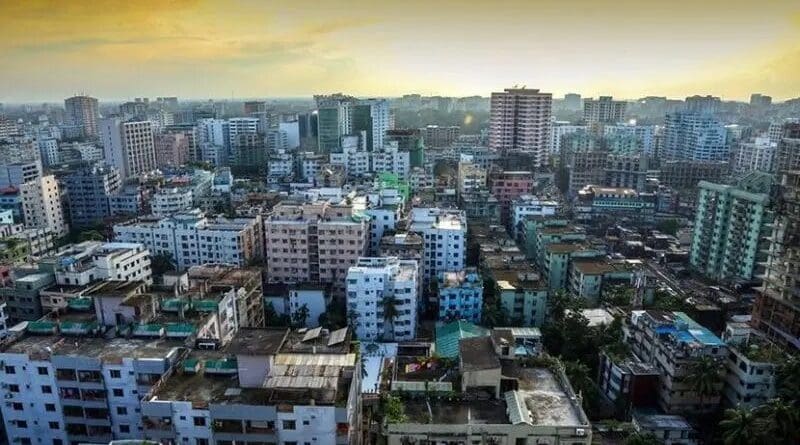Global Energy Crisis And Bangladesh – OpEd
In recent days, power generation is being disrupted as per the demand due to sudden power and gas crisis in the country. This has increased load shedding in the country, including the capital Dhaka. According to media reports, load shedding is going on for six to eight hours in some districts including Rajshahi and Rangpur in the northern part of the country. Dhaka, Chittagong, Barisal, Sylhet and Mymensingh divisions are experiencing three hours of load shedding every day.
Due to this, the city dwellers have become restless in the heat and industrial production is being hampered to some extent. Due to load shedding, the cost of buying diesel and running the generator is increasing. Many are not able to ship on time. State Minister for Power, Energy and Mineral Resources Nasrul Hamid cited the Ukraine-Russia war as the main reason for the disruption of global energy supply and the continuation of the crisis.
According to the Department of Power Development, 52% of the country’s natural and LNG gas is used for power generation. The government has decided not to buy LNG now as the price of LNG has gone up in the world market. Will buy again when the price goes down. As power generation has declined due to the gas crisis, the power department has been forced to carry out load shedding.
Global crisis
The recovery from the Covid-19 attack and the Russia-Ukraine war have made the fuel market extremely unstable. The international food market is also volatile.
This crisis is not only in Bangladesh, a developing country, but also in many developed countries. No one was ready. Europe is in a serious crisis. Russian dependence has put them in danger. They never thought Russia would cut off gas supplies. The war has changed the situation. Crisis has also occurred in Japan, Taiwan and India. People are protesting in different countries.
There is an emphasis on making the use of electricity economical. It is uncertain how long the energy crisis will last in the world market. Due to this, the crisis has intensified as the developed countries have accumulated more energy from the world market and built reserves.
The countries of the subcontinent are also facing energy crisis. Due to the crisis in Pakistan, the process of austerity in the use of electricity has continued. Everyone knows the dire situation of Sri Lanka in the energy crisis. Observers have described the power and energy crisis in the country as a “prediction” of Sri Lanka becoming a “predictor” and advised those concerned to be vigilant.
At this time, the price of fuel has risen in stages, this is the crisis we have been dealing with for the last few days. But developed countries like Japan have been dealing with the power crisis for two months. Neighboring countries India, Pakistan, Sri Lanka and Nepal are also facing load shedding.
Options at hands
There is no other way but to take measures to save electricity and prevent wastage. Otherwise, the crisis will intensify as the days go by. It is necessary to save electricity by identifying the low-importance and unnecessary use of electricity. Without going into any kind of blame game, we have to take effective steps to save and save electricity by judging and analyzing the world reality.
There is no substitute for austerity in dealing with the power crisis. The concerned departments of the government have to find out where the power is wasted, where there is redundancy and where the power can be saved. We have to think of saving electricity by reducing the office schedule and increasing the speed of work.
Wherever electricity can be saved, measures must be taken. There are electric billboards on various roads and highways in the capital and plans can be made to close them on time. Effective initiatives should be taken to stop illegal connections as well as to reduce system losses that have been going on for years. In order to ensure uninterrupted supply of electricity, emphasis should be laid on increasing domestic gas production.
So, the government is thinking of saving by reducing imports. And cost-saving load shedding is a tool for the government. It may be effective for a period of time. If prices rise, the economy will be under pressure. So cost-effective load shedding can be a temporary tool for the government. The alternative to load shedding is to increase the price of gas and electricity. But the extra price will create huge pressure for the customer.
Now the load management has to be done in such a way that the economic shock is less.
There is no problem with production capacity. The problem is the primary fuel supply. A large portion of power generation comes from imported fuels. Gas, fuel oil can all be bought, but the cost will go up a lot. Prices have doubled in countries like the United Kingdom and Hungary, and could double in the country as well.
Bangladesh needs 1500-1600 million cubic feet of gas to generate electricity. There we can deliver only 900 million cubic feet of gas. It can’t afford more gas. As it has to give priority to agriculture and industry. Fertilizer is essential for agriculture. We also have to pay a lot of gas for fertilizer production. Moreover, now the country’s economy may be under pressure to import LNG from abroad at high prices.
Undoubtedly, until recently, the Awami League has given load shedding free electricity facility to 100% of the people of the country. But now, as a result of the Russia-Ukraine war, the global energy crisis has fallen on Bangladesh. So, experts are seeking the answer, Will the reputation that the present government has gained among the people of the country by stopping load shedding be tarnished?
Sufian Siddique is a researcher and freelance columnist.

